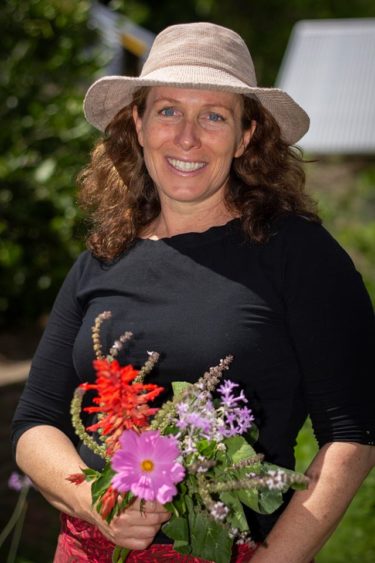Working With and Learning From Nature
Gardening the Permaculture Way: How to Create an Abundant Perennial Garden

Episode 153: Put down that shovel and start a no-till perennial garden! In this fun and informative interview, Permaculture Designer and Teacher Morag Gamble shares her tips about how to create an abundant and thriving organic oasis.
Morag’s garden in Queensland, Australia has more than 200 plants. In this episode she shares some of her favorites with us including Sweet Potato and Pumpkin. Did you know that you can eat the leaves of both?
We focus on soil health and how to build soil fertility through feeding the soil, why multifunctional perennial plants are a good choice for any garden, how to grow living mulches, and why it’s important to eat root to shoot.
We delve into Morag’s in situ composting methods that enliven the soil onsite and learn how to brew Comfrey Tea that is beneficial for plants and a potent soil activator. We also talk about what makes plants “Permaculture plants” and why they are good bets for your new or existing garden.
Working with the principles found in nature, you can start and maintain a beautiful and healthy organic garden that benefits not only you and your family, but also the wildlife in your yard.
More about Morag: Morag Gamble is the founding director of the Permaculture Education Institute. You can watch her videos online at her YouTube Channel and read her articles at Our Permaculture Life.
Morag offers many courses, including a Permaculture Gardening Course called The Incredible Edible Garden.
Morag lives at Crystal Waters. You can learn more about this award-winning eco village here.
Note: Our interview was recorded before the devastating fires in Australia. I spoke with Morag recently about the fires and will be posting that conversation as an episode soon. Until then, here’s a link to the Ethos Foundation that will support communities in need, by offering free permaculture education once the fires settle. Through the program, participants will work on connecting with their community, creating collective projects like community gardens and focus on regenerating and rebuilding – creating resilient food gardens and wildlife gardens, creating bushfire-safe landscapes and homes with a permaculture design approach. They will also activate teams to help build gardens where needed – permablitz in bushfire communities.
Podcast: Play in new window | Download (Duration: 1:06:11 — 61.2MB) | Embed
Hi! I am beginner. Your post was really good. I learn and got a proper direction from your article.
thanks
Your blog is amazing it gives so much ideas and information.
Thanks, Joshua!